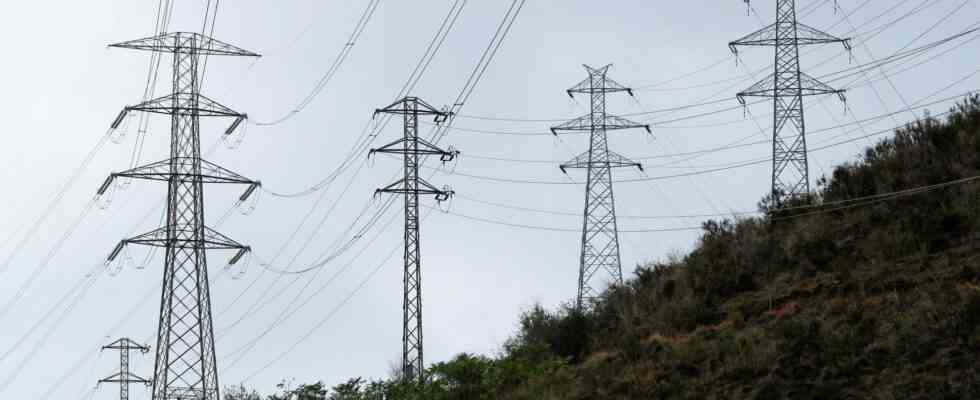As of: 10/04/2022 5:49 p.m
The EU Commission also considers large-scale power outages to be possible in the coming winter. If the worst comes to the worst, European solidarity would also be put to the test.
By Detlev Landmesser, tagesschau.de
Are there threats of increased blackouts in Europe and also in Germany this winter? The latest statements from energy experts, but also from Brussels, indicate that this danger still exists.
Germany could be forced to stop exporting electricity in winter to prevent a collapse of the domestic power grid, Hendrik Neumann, technical director at Germany’s largest transmission system operator Amprion, warned the “Financial Times”. Such an emergency measure will be limited to a few hours rather than several days.
Amprion and the three other German transmission system operators were in charge of the stress test commissioned by the federal government, which had already predicted a load undersupply for Europe in all three scenarios and for the two more critical scenarios hourly load undersupplies at the long-standing electricity exporter Germany.
Extraordinary problem accumulation
The gas crisis resulting from the Ukraine war is one of the main reasons for this, but not the only one. While there is a risk of a possible undersupply of gas-fired power plants, an increased demand for electricity through alternative heating methods such as fan heaters, convectors and heat pumps is to be expected. This year, however, brought with it an extraordinary accumulation of further problems.
The most urgent problem on the European electricity market is the deep electricity crisis in France. In our western neighbor, whose electricity supply is still around 70 percent based on nuclear power, 32 of the total of 56 nuclear power plants are still out of operation, partly because of technical problems and partly because of maintenance work. The problems are manifold; one of them is an acute shortage of skilled workers, which is delaying the necessary repairs in the emergency cooling systems. As a result, the annual production of the nuclear power plants will reach a historic low of around 280 terawatt hours, according to estimates by the operator EDF. Last year, the French reactors had delivered 360 terawatt hours. Accordingly, the nuclear nation has to import electricity. In the first quarter, around five percent of France’s total production came from Germany.
Another exceptional problem are regional imbalances in the supply of coal-fired power plants as a result of the low water levels in European waterways caused by drought.
Concern about energy infrastructure
After the alleged acts of sabotage against the Nord Stream pipelines, however, another, often unspoken concern has become apparent. Europe’s critical infrastructure is vulnerable, and coordinated attacks could wreak havoc on the power supply. This concern is likely to play a prominent role in the European Union’s contingency plans.
According to its own statement, the EU Commission is preparing for possible power cuts and other emergencies within the Union in view of the Ukraine war and the energy crisis. “It is quite possible that disaster relief will also be needed within the EU,” said the EU Commissioner for Humanitarian Aid and Crisis Management, Janez Lenarcic, the editorial network Germany.
“When only a small number of member states are affected by an incident such as a blackout, other EU states can supply power generators through us, as happens during natural disasters,” the commissioner explained. The help with material from other EU countries could be coordinated and forwarded on request by the crisis protection commissioner. In an emergency, this can be done on the same day, Lenarcic emphasized.
If a large number of countries were affected at the same time, the Commission could meet the needs from its strategic reserve. This reserve for emergencies includes firefighting aircraft, generators, water pumps and fuel, but also medical equipment and now medicine.
European solidarity challenged
If the case of large-scale blackouts, which the grid operators consider to be the most unlikely scenario, should occur, the supply of generators could of course only provide a limited remedy. And when it comes to basic physiological needs, national electricity exports are likely to be difficult to convey to one’s own population. In the worst-case scenario, the coming winter could pose a tough test for European solidarity.

